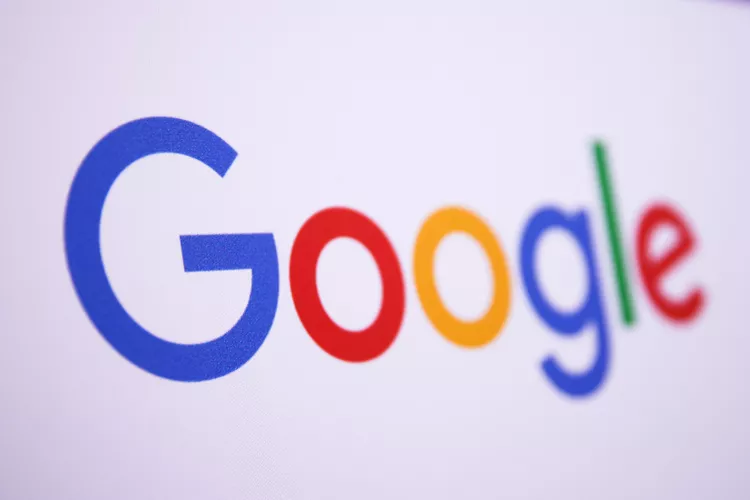
Investors react to growing concerns that generative AI could disrupt Google’s core business model
Shares of Google parent Alphabet (GOOGL) plunged Wednesday after an Apple (AAPL) executive reportedly said the iPhone maker is looking to add AI-powered search options to its Safari browser, and suggested they could eventually replace standard search engines like Google’s.
Shares of Alphabet were down 9% in recent trading. They’ve lost about a fifth of their value since the start of the year.
Apple’s senior vice president of services, Eddy Cue, said Wednesday during testimony in the U.S. Department of Justice’s lawsuit against Alphabet that searches on Apple’s Safari fell last month for the first time, and attributed the drop to rising AI use, Bloomberg reported.
Cue said Apple has had discussions with Perplexity AI, as it looks to add AI search options to its Safari browser, with expectations their use could overtake standard search engines like Google’s, the report said. Apple has reportedly held talks with Anthropic and ChatGPT maker OpenAI as well.
Such a shift could also hit Apple’s revenue—something Cue said he’s “lost a lot of sleep thinking about.” Google pays an estimated $20 billion a year to make its search engine the default option on Safari, and Apple makes a cut of Google’s ad revenue from searches through the browser. Shares of Apple slid about 2% in recent trading.
Apple’s Strategic Shift: A Potential Threat to Google’s Search Dominance
Apple’s interest in AI-powered search options represents a significant shift in its strategy. For years, Google has paid Apple an estimated $20 billion annually to make its search engine the default on Safari, a deal that has been highly profitable for Apple. In 2022, this arrangement accounted for approximately 18% of Apple’s pre-tax earnings.
However, with the rise of AI technologies, Apple is exploring alternatives that could reduce its reliance on this lucrative partnership. The Star+1The Edge Malaysia+1Barron’s+1Futunn News+1
Cue’s testimony highlighted that the decline in search activity on Safari coincided with the increasing use of AI tools.
He expressed concern that this trend could lead to a future where AI-powered search options surpass traditional search engines like Google’s. This potential shift poses a direct challenge to Google’s business model, which heavily depends on advertising revenue generated through its search engine.
The Financial Implications for Apple
The prospect of losing the $20 billion annual payment from Google raises significant financial concerns for Apple. Analysts estimate that if the antitrust lawsuit leads to the termination of this agreement, Apple could face a 4% to 6% decline in its profit.
This loss would be particularly impactful given that the payment constitutes a substantial portion of Apple’s services revenue. The Star+1
Despite these concerns, Apple is not without options. The company is reportedly in talks with other AI companies to develop its own search capabilities.
Additionally, Apple is enhancing its AI technologies, such as integrating ChatGPT into its devices and revamping Siri with advanced AI features. These initiatives could help Apple mitigate the financial impact of losing the Google search deal.
Google’s Response and Market Outlook
In response to the stock decline, Alphabet has emphasized its ongoing innovation and growth in areas beyond search. The company is expanding its AI initiatives, including AI Overviews and new tools like AI Max and Google Lens ads.
These efforts aim to diversify Alphabet’s revenue streams and reduce its dependence on traditional search advertising. Barron’s+1investopedia.com+1
Analysts remain cautiously optimistic about Alphabet’s prospects. While acknowledging the challenges posed by AI competition, they point to Google’s strong position in the market and its continued investment in AI technologies.
For instance, Google’s Chrome browser maintains a 66% market share, significantly higher than Safari’s 17%. Furthermore, Alphabet’s YouTube and Google One services boast a combined 270 million subscribers, and its Waymo driverless taxi service has seen a surge to 250,000 weekly rides.
These factors contribute to a relatively low valuation for Alphabet, making it an attractive option for long-term investors.
The Broader Implications for the Tech Industry
The developments between Google and Apple underscore the growing influence of AI in reshaping the tech industry. As AI technologies continue to advance, traditional business models are being challenged, and companies must adapt to remain competitive.
For Google, this means not only defending its position in the search market but also expanding its AI capabilities to meet evolving consumer expectations.
For Apple, the situation presents both challenges and opportunities. While the potential loss of the Google deal could impact short-term profits, the company’s efforts to develop its own AI-powered search options could position it as a formidable competitor in the long run.
As the tech industry continues to evolve, the interplay between AI advancements and traditional business models will likely remain a central theme. Companies that can effectively leverage AI technologies while maintaining their core business strengths will be best positioned to thrive in this rapidly changing landscape.
In conclusion, the recent developments involving Google and Apple highlight the significant impact of AI on the tech industry. While challenges exist, both companies are actively pursuing strategies to navigate this evolving landscape.
The outcome of the ongoing antitrust case and the subsequent strategic decisions by both companies will likely have far-reaching implications for the future of AI and its role in shaping the tech industry.



